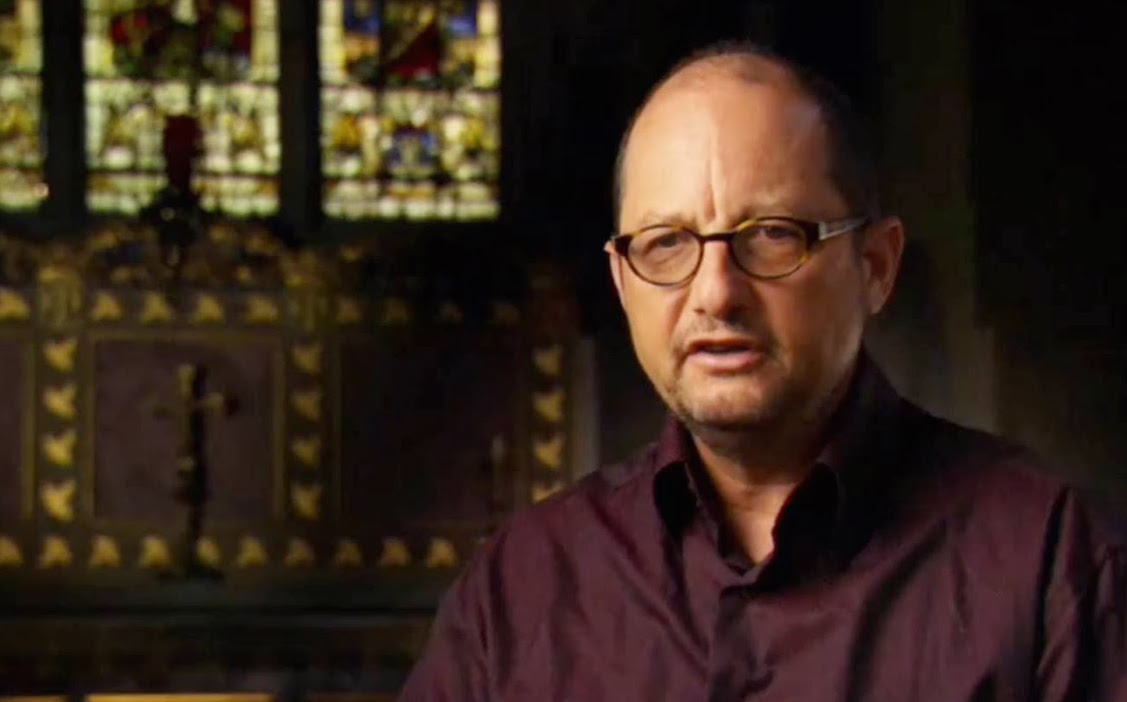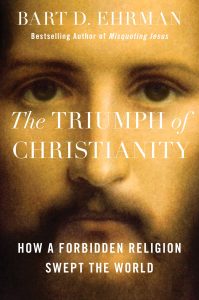In Liber 888 Crowley claimed “an intimate knowledge of the Bible so deeply rooted that it seems hardly unfair to say that it formed the whole foundation of my mind,” and declared further, “I am the truest of all Christians.” So one might contend that Crowley’s religious and philosophical system of Thelema has Christian roots that some (thought perhaps not all) might find useful to contemplate. Earlier this year the New York Times Book Review published Tom Bissell’s review of The Triumph of Christianity: How a Forbidden Religion Swept the World, a new book by Bart Ehrman, a former Evangelical Christian who’s written a string of very popular, critically acclaimed books taking a deep look in the reality of Christian beginnings. This one examines the faith’s transition from obscure, sometimes viciously persecuted cult to the dominant religion of the Roman Empire. Among the more controversial positions Ehrman takes is that it would have come to power even without the approval and patronage of Emperor Constantine in the 4th Century BCE, to wit:
“Ehrman rejects the idea that Constantine’s conversion made much difference; the empire, he writes, would most likely have turned Christian in time without him. So how did Christianity triumph? To put it plainly, Christianity was something new on this earth. It wasn’t closed to women. It was so concerned with questions of social welfare (healing the sick, caring for the poor) that it embedded them into its doctrines. And while there were plenty of henotheist pagans (that is, people who worshiped one god while not denying the validity of others), Christianity went far beyond henotheism’s hesitant claim upon ultimate truth. It was an exclusivist faith that foreclosed — was designed to foreclose — devotion to all other deities. Yet it was different from Judaism, which was just as exclusivist but crucially lacked a missionary impulse.”
This review, and likely the book, do not discuss the many abuses the Christian Church and community were able to practice once it’d become inextricably interwoven with the temporal power of European monarchies.
Read the whole review here:
https://www.nytimes.com/2018/02/13/books/review/bart-d-ehrman-the-triumph-of-christianity.html.


